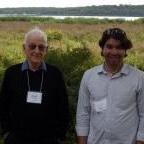-
Posts
3,401 -
Joined
-
Last visited
Recent Profile Visitors
4,529 profile views
Analytics's Achievements
-
I think what he said was clear and was consistent with what most apologists were saying at the time.. On June 18th, 2015, I wrote a post expressing my belief that the Church was in fact systematically saving for a rainy day and my belief that this would result in a massive accumulation of wealth that could be tapped into to help fund the mall. I said, "So when the Church says, "no tithing money was used," the meaning of that isn't clear; if the Church has any tithing money saved in a stock or bond issued by one of the Church's for-profit businesses, and if that for-profit business used any of its resources to fund the project in question, there is a direct connection between the tithing dollar and the fungible resources of the for-profit entity." If I said that now, I would expect everyone to say "no, tithing ceases being tithing the moment it is paid, therefore there isn’t a connection between interest and principal." Back then, you responded by saying: The post you thought was authoritative was written by kimpearson on June 15, 2015 and said: Kim Pearson was saying essentially the same thing that Pahoran was saying, and you found his post to be authoritative.
-
What he said then is consistent with and representative of what most Latter-Day Saints were saying in those threads, including you. Feel free to reach out to him if you want.
-

We Actually Do Know that Literal “Spirits” Aren’t Real
Analytics replied to Analytics's topic in General Discussions
Ironically, Karl Marx would agree with you on that. Marx had no interest in making buyers, sellers, or workers do things they didn’t want to do. He simply thought that workers should own the means of production. -
A few years ago, I was working on a consulting project for an extremely large organization that had a budget of many billions of dollars. At the end of the project, I was given an audience with a senior executive of the HR department in an all day meeting with him, his staff, and a few other consultants I was working with. At the end of the meeting, I made a pitch on how to solve a major problem they had. My proposed solution was bold, innovative, and would have totally fixed the problem. But it was risky--it was something nobody else had done before. After my pitch, the senior executive said, “no, we aren’t going to do that.” I asked why not; what part of my logic did he disagree with? He said "nothing in particular." I asked why he wouldn’t consider it then. He simply said this: “I’m not convinced." And that was that. The meeting ended. I went home. Life went on. On another thread, somebody asked me to explain my beliefs about something, and I made a good-faith effort to answer the question. I didn’t expect anybody to be convinced that I was right, but I did think that maybe somebody might understand me a little better. @smac97 could have carefully considered my arguments and read the books I recommended. He could have debated me about my arguments. He could have asked clarifying questions and tried to understand me. Or he could have totally ignored it. Or he could have said “I’m not convinced.” But instead, he made an unprovoked personal attack against me--in a single post that was 13 pages when printed out, he went on a rant about how he doesn’t take me seriously. And one of his primary pieces of evidence was the topic of this thread and his claim that he had proven I misremembered the conversations from 2012 and 2015. The truth is I was mostly right in everything I said back then--far more right than what the vast majority of apologists were saying. And the truth is I remembered the conversation very well. And the truth is I’m still right now. “Tithing” means donations made to the church that are designated as tithing. Of course--nobody disputes that. And principle and interest are two different things. Of course. Nobody disputes that. But interest on principle does in fact come into existence because the principle was invested in the first place; if there is no principle, there can be no interest. That is what “indirect” means, and that is the specific thing we were discussing back then. And with that, I close my case.
-
Sean Carroll explains it as follows: Carroll, Sean M. . The Big Picture: On the Origins of Life, Meaning, and the Universe Itself (pp. 40-41). Penguin Publishing Group. Kindle Edition.
-
This is the way most people view the situation now, but I’d like to juxtapose this with a conversation from about 9 years ago. On June 13, 2015, @Robert F. Smith said: I responded with this: When I said that, nobody said “interest on tithing isn’t tithing!” And nobody argued that I was using the wrong definition of tithing. And nobody said interest on principle isn’t principle. Rather, they said things like what @bluebell said to me then: And that is why they thought people like Paxton and I were wrong for suggesting that interest on the rainy day fund was probably used. The person who actually worked as an accountant for the Church she is referring to is Kim Pearson who said in a post that has 19 up-votes (with my highlights in bold and a few comments [in braces]) Here are the main points Pearson made, and my thoughts on them now: There are two basic legal entities, the for-profit entity and the non-profit entity. That is true. And remember, Ensign Peak Advisors is part of the non-profit entity. Pearson claimed that the reserves of the non-profit entity were small and would only sustain the church for a very short period of time. That was obviously false to some of us like Paxton and me back then, and it is obviously false to everyone now) “There is no cross mingling between the two entities.” There isn’t mingling in an accounting sense, but the two entities do support each other. The Church owns the for-profit entities and provides them with capital. Most of the capital organically grew within the for-profit entities, but fresh infusions of capital can be made and were made for both the mall and the bail out of the insurance company. This isn't illegal. Likewise, the for-profit entities can pay profits to the church in the form of dividends. Totally legal.
-
Let's take this line of reasoning to its logical conclusion and see if you are being consistent. Hypothetically, let’s assume the Church has $150 billion in commercial assets that generates $10 billion a year in interest. And let’s assume that every year it takes in $8 billion in tithing, and has total expenses of $7 billion to run the Church. Using these numbers, would it be accurate to say that right now, “no tithing funds are used” to run the Church and that 100% of tithing is used to build the size of Ensign Peak Advisor’s portfolio of commercial assets? Without a doubt. But I think you might be wrong about a few things, too.
-
Do you think those are the only five people who saw it that way? In 2012, Pahoran and Huntsman were both tithe-paying, faithful members of the Church. That isn’t nothing. Furthermore, Huntsman claims now that he interpreted the Church’s statements in the same way that Pahoran said he did in 2012. That goes a long way to help us evaluate whether or not its plausible that Huntsman is telling the truth. I’m quite certain that Pahoran doesn’t have any interest in my empathy, but that doesn’t mean I can’t earnestly try to understand where he’s coming from. I try to understand people, and you are acting like that is a character defect of mine.
-
To me, “for-profit ventures” refers to Deseret Management Corp, its subsidiaries, and related for-profit entities. The Church did in fact use perhaps 50-70% of funds from that side of the house. The remaining 30-50% came from Ensign Peak Advisors, which is a non-profit venture.
-
THANK YOU!!!
-

We Actually Do Know that Literal “Spirits” Aren’t Real
Analytics replied to Analytics's topic in General Discussions
I appreciate you sharing these thoughts with me. In the post I just made to BlueDreams, I responded in relative detail to this video, which I did watch in its entirety. I follow people talking about NDE’s in forums like this one, but I have never dived into an actual book on the subject--I just haven’t seen enough to think it would be worth my time. I do agree with you that we don’t have all of the answers about what’s going on in the world, but I do believe we know enough to rule out some explanations of some things, including the transcendental explanation of NDE’s. But I admit that I’m shooting from the hip on that. I’ve read about various attempts to test NDE theories with cardiac arrest patients, and if some of them showed impressive results in a controlled environment, I’d be much more inclined to take it more seriously. -

We Actually Do Know that Literal “Spirits” Aren’t Real
Analytics replied to Analytics's topic in General Discussions
True. I was using the word “proof” in a colloquial sense, trying to fairly but concisely relay Sean Carroll’s point. I need to stop you there. Does it really make sense for a disembodied spirit to literally see a stain on a neck tie? When people see things, it’s in a lit space. Light rays bounce off objects, are focused through a lens, go into a dark eyeball, strike retina, which generates electrical signals that travel through the optical nerve to the brain. That’s what it means to see. If an disembodied spirit was capable of seeing, we should be able to clearly see how it distorts the light it is gathering to see, not to mention its eyeball. So does a disembodied spirit see actual light rays? Or is the argument that the spirit is in another dimension or is interacting with some sort of spirit matter? If that’s the case, when Greyson was eating physical spaghetti to feed his biological body, did the spaghetti have a spiritual essence that his spirit was eating? Did that spiritual spaghetti sauce fall onto his spiritual tie and leave a spiritual stain? If that is what the disembodied spirit saw, it raises the question of why blind people can’t use their spiritual eyes to see what’s going on in the world. The same line of reasoning goes for hearing--how can a spirit hear a conversation without disturbing the sound waves, etc. For me, believing the transcendental explanation of NDE's is the correct one would take a lot more evidence than the anecdotal evidence that I’m aware of. I think NDE’s happen, but not very many constitute evidence of actual spirits literally leaving the body. That’s the way I see it. Those are all good points. People I read tend to use Bayesian reasoning to create extremely high thresholds for things that contradict established laws of physics. On the one hand this is an effective way of dealing with fake science and the accompanying replicability crisis. But on the other hand, it does limit what you take seriously. It’s definitely conceivable that there could be a thing or two that are lumped in with pseudoscience that really are true. Yuval Noah Harari is actually a historian and not a biologist. Historically, Mormonism has taught that have a distinctive anti-evolution. For example, Russell M. Nelson is on record as saying, "to think that man evolved from one species to another is, to me, incomprehensible. Man has always been man. Dogs have always been dogs. Monkeys have always been monkeys. It's just the way genetics works.” More to the point, Joseph Fielding Smith said, "There is not and cannot be, any compromise between the Gospel of Jesus Christ and the theories of evolution......It is not possible for a logical mind to hold both Bible teaching and evolutionary teaching at the same time." Of course Joseph Fielding Smith being an apostle at the time he said such things doesn’t make such teachings official or binding on Mormons, and as far as I know fewer and fewer Mormons see the world in the same way he did. But in general, a lot of Christianity is very threatened by Evolution. Harari’s point was definitely a broad generalization that doesn’t fit with all conceptions of souls, but it is still illuminating. I think you would really like the Book Who’s In Charge?: Free Will and the Science of the Brain. Despite his superlatively strong credentials, Gazzaniga is very down to earth and sympathetic. While telling the story of the research that led to the conclusions he shares in this book, he actually provides a definition of consciousness. In context, he says: Gazzaniga, Michael S.. Who's in Charge?: Free Will and the Science of the Brain (pp. 67-68). HarperCollins. Kindle Edition. Those are all excellent questions. Gazzaniga’s research doesn’t start out by answering those questions. Rather, he starts in the clinic doing research, and the research leads to tighter and tighter constraints on what answers are plausible and which are not. I appreciate you thinking about it and am glad you found my thoughts interesting. I wasn’t trying to convince anyone so much as explain where I was coming from. The good news about my belief structure is that I don’t believe people will be punished after their dead for not agreeing with me. -
Maybe somebody said it back then and I just haven’t seen it. Whether they did or didn’t doesn’t affect my point. Here’s the issue. @smac97 thinks Huntsman is lying about how he interpreted the Church’s statements because no believing Mormon would believe what Huntsman claims. In contrast, I think Huntsman is being sincere, because historically, many people did in fact interpret things in basically the same way that Huntsman did. I’m trying to have empathy for Huntsman, Pahoran, and everybody else who were confident that the ultimate sources of the mall funding came from the Church’s historical for-profit ventures and non-tithing donations. @smac97 is trying to gaslight us about the historical record, and discredit me personally in the process. I’m still trying to have empathy for believers and I’ll open up this question for all of the masochists who are reading this: Pahoran was confident that if you traced the genealogy of the money that was used to fund the mall, it wouldn’t go back to tithing. What was the basis for his confidence? My theory is that he thought that Hinckley’s assurance that tithing wouldn’t be used should be interpreted broadly--tithing wouldn’t be used, neither directly nor indirectly. Further, I think he and most Mormons believed that that interest earned on unspent tithing was just about as sacred as the tithing itself. Am I wrong about that?
-
Yes, I know this is how you interpret Hinckley’s remarks now. Did anybody make this argument in 2012 or 2015? No they did not. Repeating the personal anecdote I made up in case you missed it, this line of reasoning reminds me of an argument I had with my now ex-wife. I promised her that I wouldn’t use any of our retirement savings for my hunting trip to Alaska with the guys last summer. When she did some digging, she accused me of using the retirement savings. I explained that retirement savings refers to the amount of money we “save” over the years. I didn’t touch that--rather, I used the interest on the savings, which is a totally different thing.
-
Okay, I’ll stipulate that the criticisms were bad, their assumptions were bad, and that the apologists never embraced the bad assumptions. The fact remains that most of the apologists responses were like this one from Pahoran: I am confident that the City Creek Mall's pedigree would trace back, not to the tithing paid in St George after President Snow's famous "Windows of Heaven" talk, but to the original Zion's Co-operative Mercantile Institution. Why do you think Pahoran was confident about that? My theory is that he thought that Hinckley’s assurance that tithing wouldn’t be used should be interpreted broadly--tithing wouldn’t be used, neither directly nor indirectly. Further, I think he and most Mormons believed that that interest earned on unspent tithing was just about as sacred as the tithing itself. But that’s just my theory, and I’m open to correction. Why do you think Pahoran was confident that the pedigree goes back to ZCMI and not to tithing?









